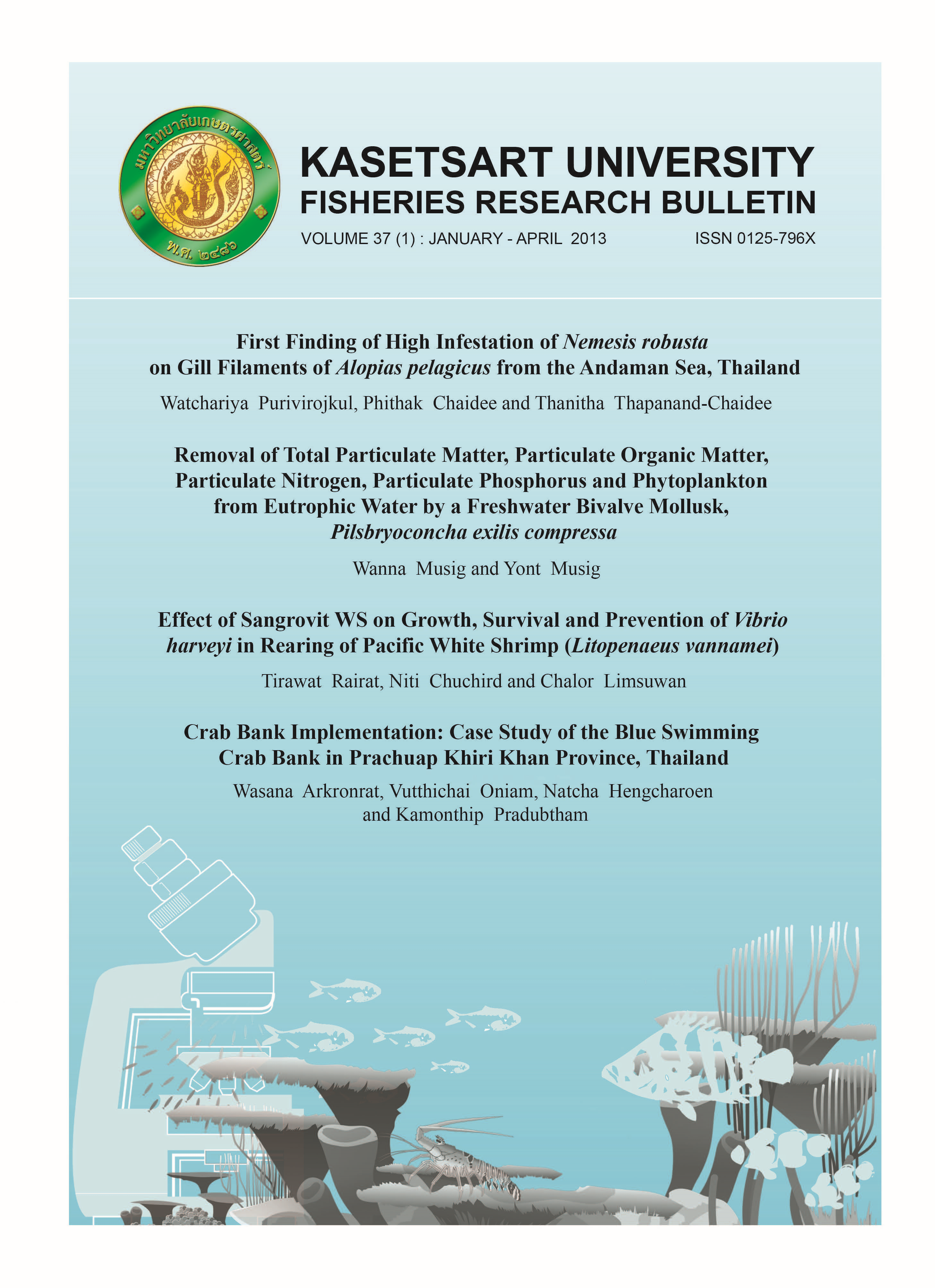Effect of Sangrovit WS on Growth, Survival and Prevention of Vibrio harveyi in Rearing of Pacific White Shrimp (Litopenaeus vannamei)
Main Article Content
Abstract
These studies were conducted under laboratory conditions. In Experiment 1, postlarvae 12 (PL12) were stocked in 500-liter fiberglass tanks (25 ppt salinity) at a density of 50 PL/tank. Shrimp were fed four times daily with pelleted feed containing Sangrovit WS at 0, 100 and 200 ppm (in three replicates/treatment). After 60 days of dietary administration, shrimp fed with 100 ppm of Sangrovit WS had an average body weight of 6.69 ± 0.44 g, which was higher than those of shrimp fed with 200 ppm of Sangrovit WS (6.60 ± 0.21g) and the control group without Sangrovit WS (6.49 ± 0.42g). Shrimp fed with 200 ppm of Sangrovit WS had the highest survival rate at 79.33 ± 10.26 %, followed by those fed with 100 ppm of Sangrovit WS (74.67 ± 10.07%) and the control group without Sangrovit WS (68.00 ± 6.93%). In Experiment 2, 30 shrimp from each tank in Experiment 1 were randomly sampled and stocked in 12 x 500-L fiberglass tanks with four replicate tanks per treatment group. Vibrio harveyi was added into each tank to obtain final concentration of 103 CFU/ml. Each treatment group received the diets four times daily for 30 days. All water quality parameters were maintained as in Experiment 1. At the end of the trial, there was no difference among the average body weight and the survival rate of shrimp from the three experimental groups. The study on the total number of Vibrio spp. in intestine of shrimp revealed that shrimp fed with 200 ppm of Sangrovit WS had the lowest total number of Vibrio spp. in intestine throughout the feeding trial followed by the group fed with 100 ppm of Sangrovit WS and the control group without Sangrovit WS. The total number of bacteria in the intestine of shrimp fed with 200 ppm of Sangrovit WS was significantly lower than in the groups fed with 100 ppm of Sangrovit WS and the control group throughout the feeding trial. The anti-inflamatory property in the hepatopancreas of shrimp was observed in the group fed with 100 and 200 ppm of Sangrovit WS. This study revealed the benefit of Sangrovit WS in anti-inflamatory and antimicrobial activities in shrimp.


